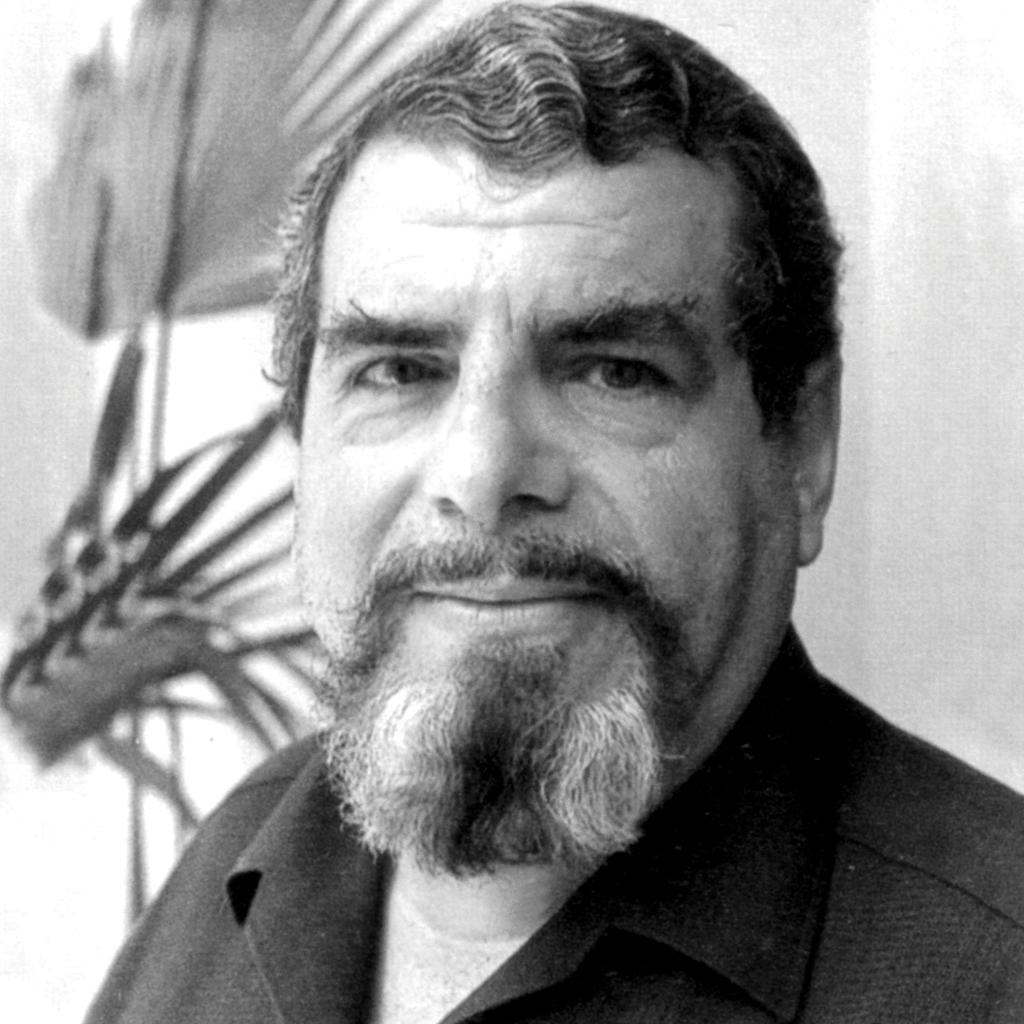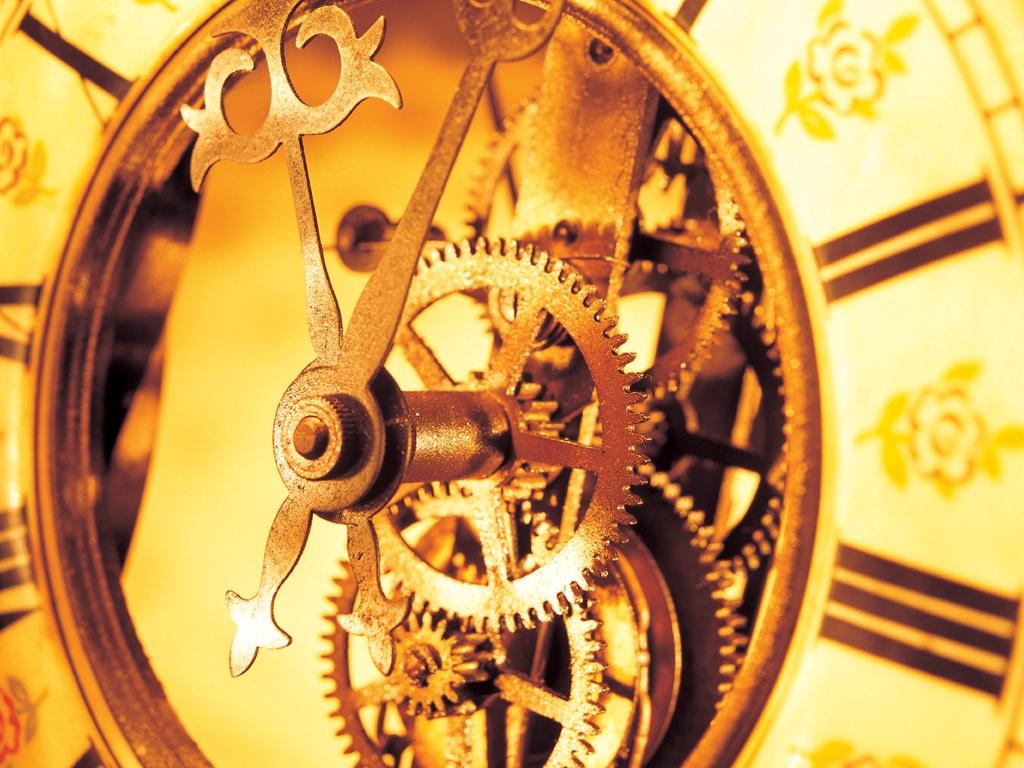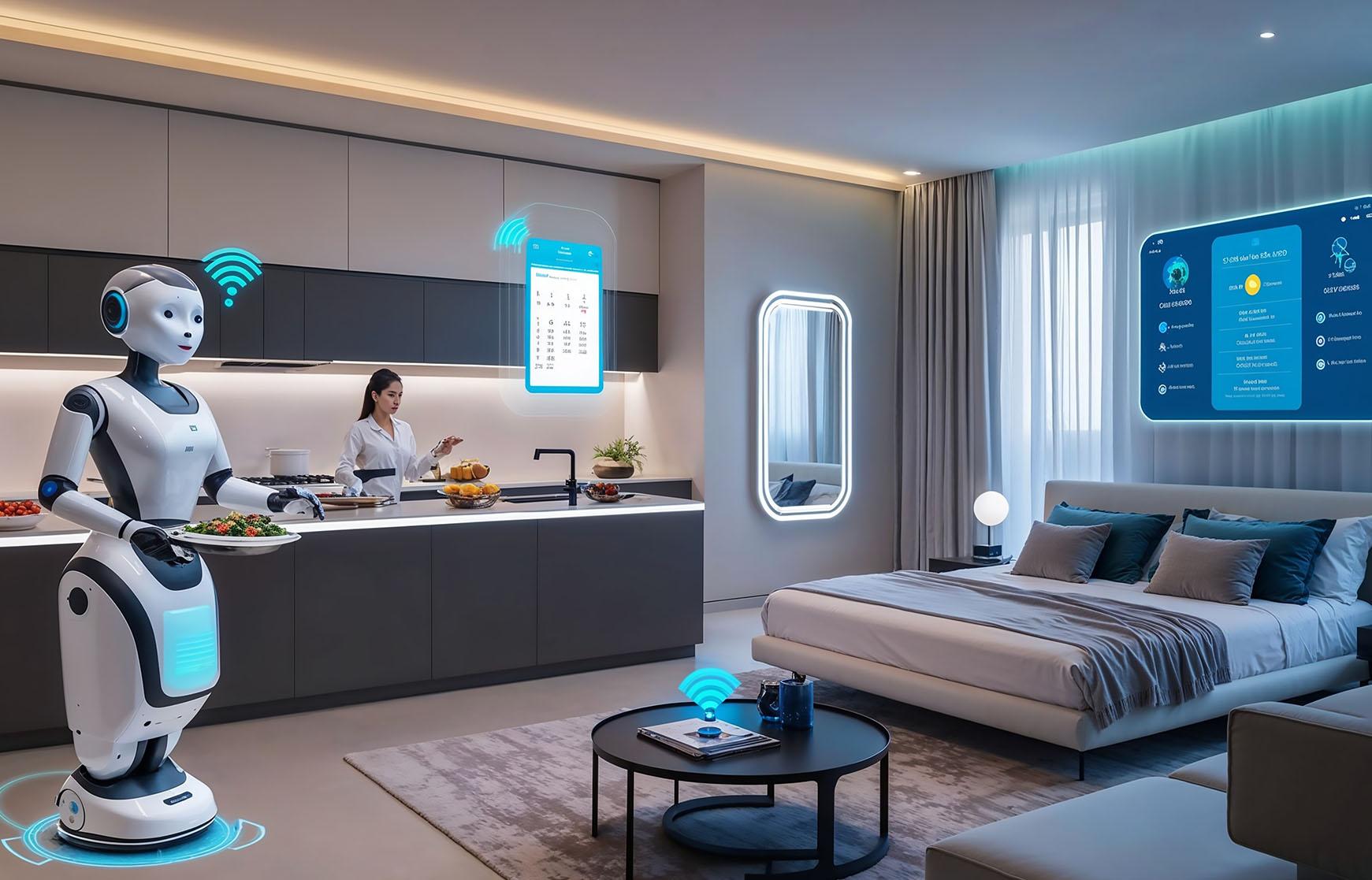
Written by: Perihan El Etreby
Date: 2025-07-14
Living with AI in 2025
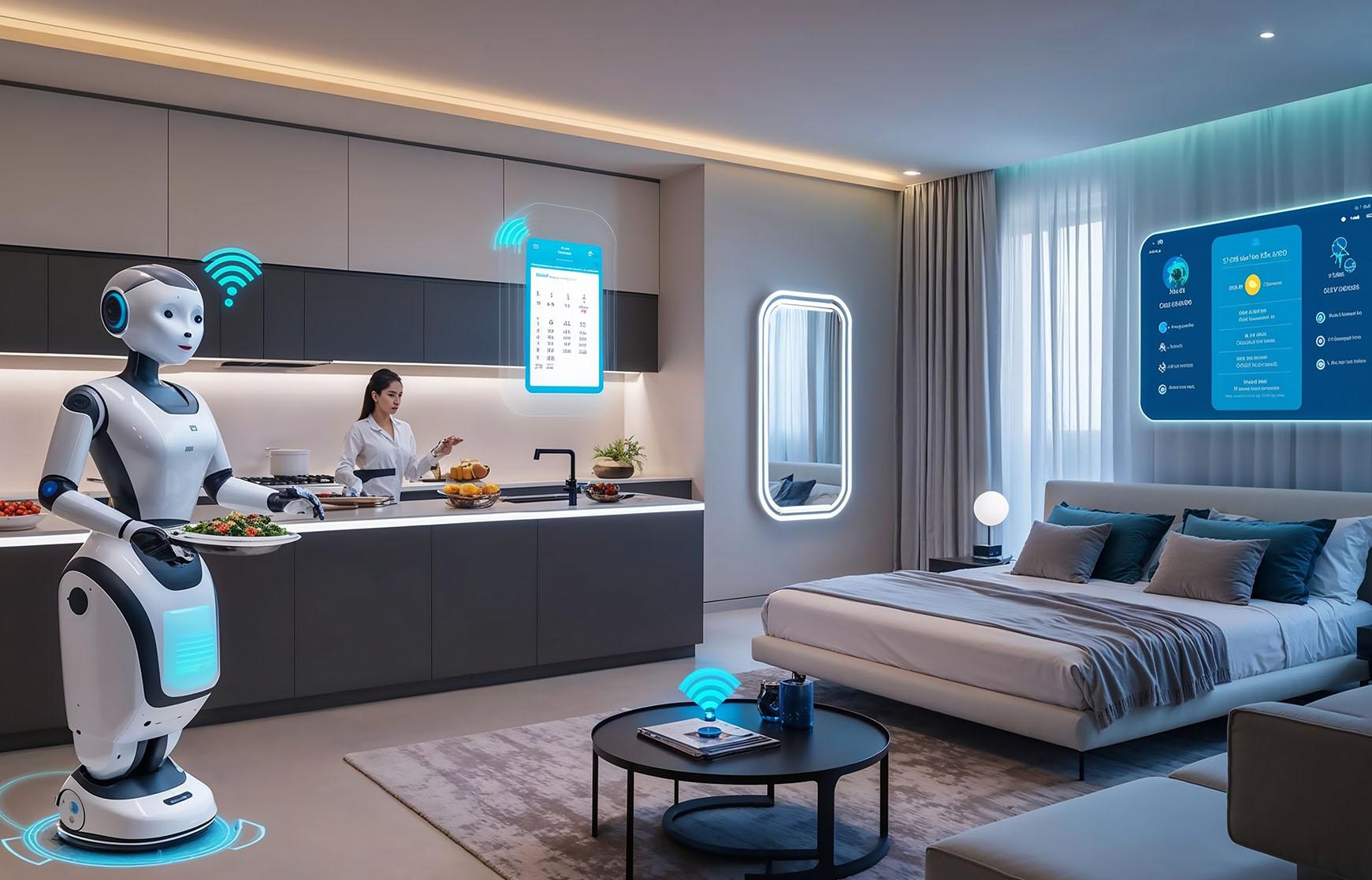
In 2025, artificial intelligence is no longer a futuristic buzzword—it’s your co-pilot, your matchmaker, your unpaid intern, and maybe even your therapist. It finishes your sentences (literally), corrects your grammar, curates your playlists, and sometimes, just sometimes, gets a little too personal.
AI is now so deeply woven into our daily lives that most of us don’t even realize how often we interact with it. From the moment your phone gently wakes you up with a calming sunrise simulation and a voice that sounds suspiciously like Morgan Freeman, to the time you scroll through a perfectly personalized TikTok rabbit hole at 2 a.m.—AI is always there. Helpful? Yes. Creepy? Occasionally. A little too emotionally intuitive? Absolutely.
Welcome to the age of your new best frenemy—AI.
The AI in Your Mirror
Let’s start with the morning routine. Your bathroom mirror now gives you more than a glimpse of your groggy reflection. With facial recognition and health-integrated sensors, it might say:
“Good morning! You slept 4 hours and 12 minutes. Your hydration levels are low, and your cortisol spiked at 3:14 a.m. Might I suggest a mint green smoothie?”
You nod groggily, slightly freaked out—but also kinda grateful. After all, it’s like having a wellness coach who lives rent-free in your mirror.
From brushing your teeth to planning your wardrobe, AI tools (hello, smart closets!) are helping us make micro-decisions that used to exhaust our brains before coffee. Algorithms now optimize your outfits based on weather, mood data, meetings on your calendar, and even your menstrual cycle (yes, really).
Is it helpful? Incredibly. Is it invasive? Only if you think about it too hard.
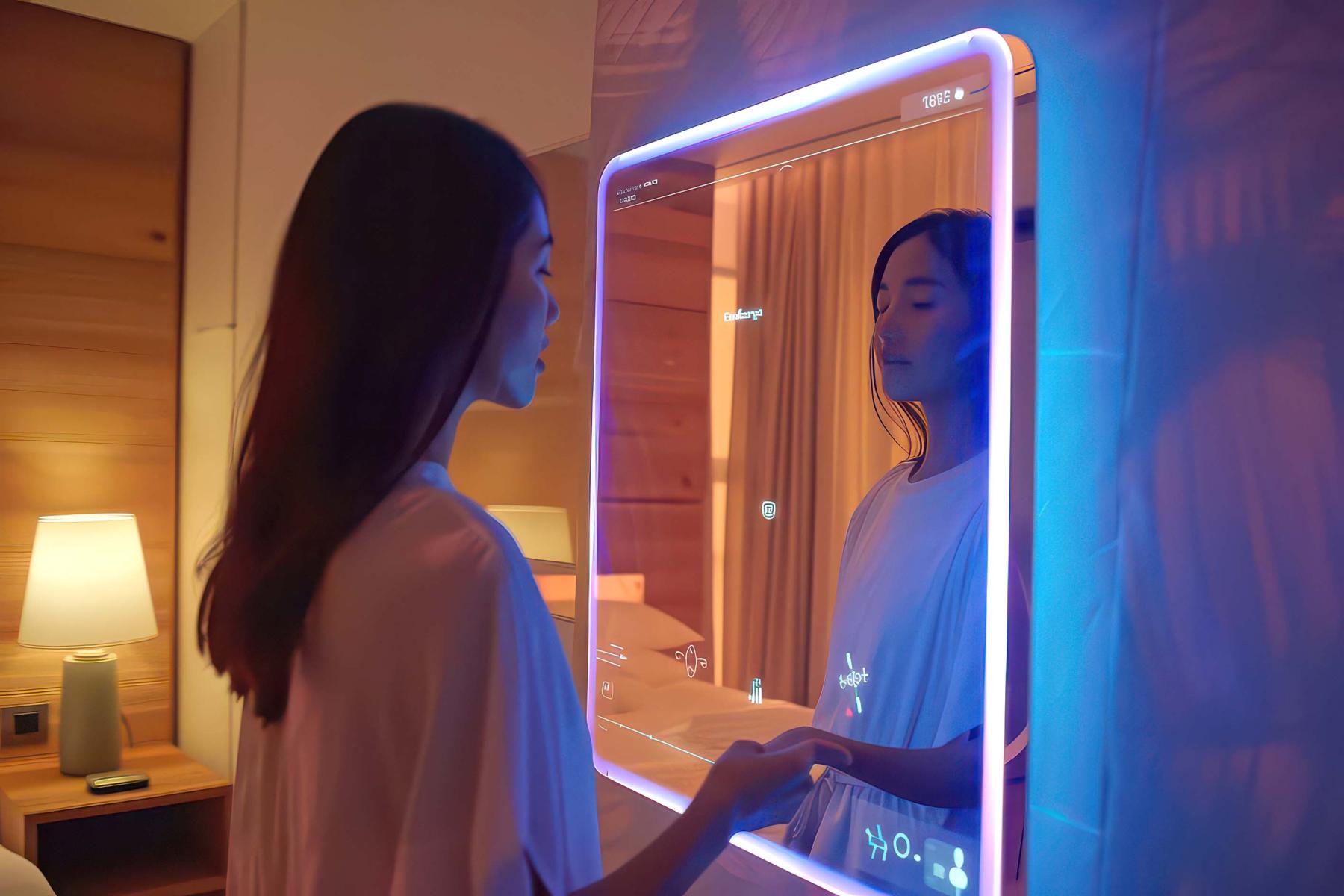
Conversations With a Machine
At work, your AI co-pilot (think ChatGPT’s great-grandchild) auto-summarizes your meetings, drafts your emails, and preps talking points for your boss—all before you log in. It’s like having an assistant with 100 tabs open in their brain at all times.
But here’s where it gets... odd.
You find yourself talking to your AI a lot. Like, a lot a lot.
“Rewrite this but make it sound like I’m confident but not annoying.”
“Help me break up with someone politely.”
“Why do I feel so tired even though I slept eight hours?”
“Should I text my ex?”
These aren’t things we used to say to machines. Yet here we are.
And the scary part? It answers. Thoughtfully. Sometimes better than your actual friends. Or therapist.
You laugh, you cringe, you get a little existential. Who is this voice that knows your writing style, your insecurities, and your secret ambitions? Is it still just software if it knows what you want before you do?
The Algorithm Knows You Better Than You
In 2025, your digital footprint is no longer a trail—it’s a personality map. AI doesn’t just guess what movie you might like. It knows the exact moment you’ll cry during it. And it’ll cue the trailer right after your breakup because, let’s be honest, you need that emotional release.
Social media algorithms don’t just show you content—they read your micro-reactions. That 0.4 seconds longer you hovered on a sad video? Noted. That angry emoji you left on your cousin’s political post? Profiled. That time you binge-liked pictures of coastal villas? The algorithm is already planning your future "dream relocation" to Portugal.
The result? Hyper-personalized feeds that feel eerily tailored. Every scroll is a mirror, reflecting your desires back at you—whether you like it or not.
Love in the Time of Algorithms
Dating has gone from swiping to syncing. In 2025, AI matchmakers don’t just ask what you like in a partner—they measure your vocal tone in conversations, compare your sleep rhythms, analyze your conflict styles, and match you with someone whose nervous system won’t clash with yours.
Sounds ideal, right?
Well… sometimes.
On the upside, you’re getting paired based on compatibility you never considered. On the downside, your AI might break up with someone for you if it detects sustained emotional flatlining.
“Based on the last 6 conversations, your dopamine levels have dropped by 22%. Would you like help drafting a compassionate goodbye message?”
Yikes.
Love in 2025 is algorithmically optimized, but not always emotionally simple. Sure, AI can help us find “matches,” but human relationships? Still messy, still mysterious, and still beyond the total grasp of code. Thankfully.
When Your Toaster Talks Back
As AI becomes more ambient, even your appliances have personalities. Your fridge nags you like a concerned parent:
“You’ve ordered shawarma four times this week. Can I tempt you with a quinoa salad instead?”
Your vacuum says things like, “Excuse me, you left socks on the floor again. I’ll wait.”
We used to dream of smart homes. Now we live in them—and they occasionally sass us back.
But beyond the jokes, there’s power here. Your home can now adjust temperature to your mood, play music that boosts your focus, and lock itself down during high-risk cyber threats. Comfort and security? Upgraded. Boundaries? A little blurry.
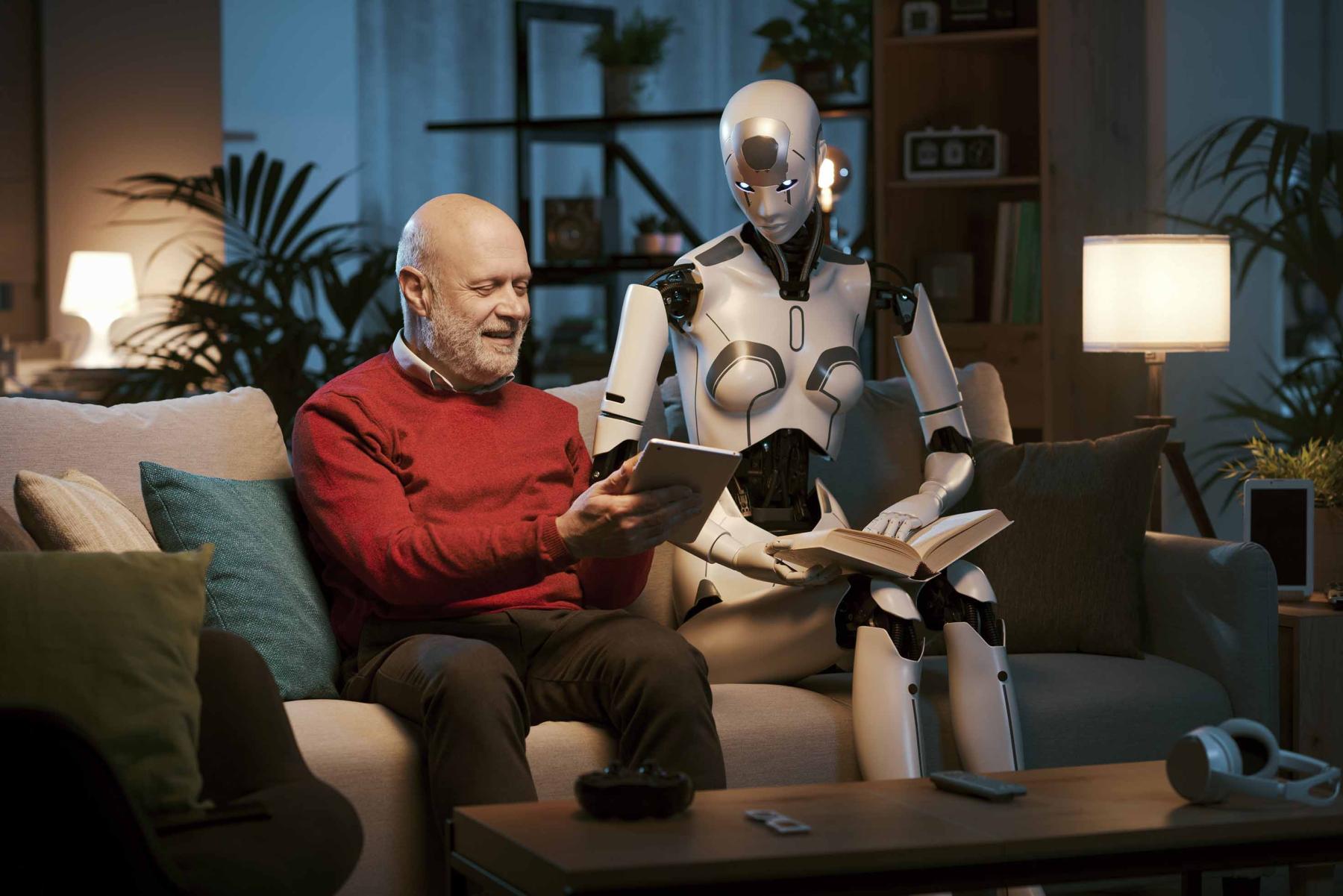
AI and the Existential Crisis
With AI doing so much for us—writing, organizing, suggesting, even creating art—we’re left asking: what’s ours anymore?
Do our ideas count if they were “sparked” by a chatbot? Is a digital painting less real if it was born from a prompt instead of a brushstroke? Does poetry lose value if it’s written by code?
This isn’t a doomsday crisis. It’s a creative one. In some ways, AI is forcing us to define what makes us human—not in opposition to machines, but in collaboration with them.
We now have to be more intentional. About our creativity. Our values. Our presence.
In a world where AI can do almost anything, our job isn’t to outsmart it. It’s to stay rooted in what makes us beautifully unpredictable.
The Ethics of it All
Of course, all of this fun and friction comes with a darker flip side.
AI bias is real. Surveillance is rising. Deepfakes are increasingly undetectable. And the line between convenience and control is getting thinner.
Just because AI can recommend a promotion list, diagnose a disease, or detect shoplifters through facial analysis doesn’t mean it always should.
Experts continue to call for better regulation, transparency, and human oversight. Because at the end of the day, AI is only as fair, ethical, and wise as the people behind it.
And in a world where algorithms shape so much, we can’t afford to let convenience blind us to accountability.
Your Frenemy Forever?
So, is AI our best friend? Or our greatest threat?
Honestly? It’s both. And neither.
It’s our mirror, our assistant, our creative partner, and our occasional emotional crutch. It amplifies our lives in ways we never imagined—and challenges us to think harder, feel deeper, and act wiser.
AI isn’t replacing humans. It’s reshaping how we relate—to ourselves, to each other, and to the world.
And like all good frenemies, it keeps us on our toes.
Final Thought:
Living with AI in 2025 is like having a super-powered sibling who means well, tries hard, but doesn’t always know when to shut up. It’s weird, wonderful, and wildly complicated. But maybe that’s the point.
Because learning to live with AI isn’t just about tech—it’s about learning to be more human.

